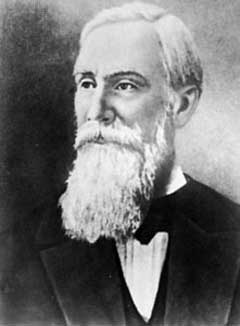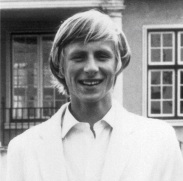Say it ain't so!
Well... I guess it ain't
technically "so"... but hear me out on this one.
Noah Smith, citing his personal experiences in Japan, writes that
irreducible transaction costs place a not insignificant constraint on the gains to be had through privatisation:
[T]he existence of a government-owned "commons" often makes people feel more free, not less. Sure, the commons is financed through taxation, and sure, that means that people generally don't receive benefits exactly equal to what they pay. But the difference can be small, and is often canceled out by the fact that you only pay once rather than a million billion times. [...]Past a certain point, the gains to privatization are outweighed by the sheer weight of transaction cost externalities. (Note that transaction costs also kill the Coase Theorem, another libertarian standby; this is no coincidence.)
Of course, these aren't new points... Even yours truly has been known to say similar such things. From time to time.
Ahem.
All that being said, the above is really just an elaborate segue to something else that I read earlier this week: A 1995 paper by the late Paul Samuelson,
Some uneasiness with the Coase Theorem.
In typically pithy fashion, Samuelson hits on several issues surrounding the Coase Theorem that have come up in the blogosphere. Such as:
- What exactly qualifies this as an original "theorem"?:
Many disciples cheerfully agree: There is no Coase Theorem. (Cf.
Env-Econ.)
- The problem of distorted incentives in establishing an efficient allocation of resources: "
If I go the road of buying off those who would burglarize me, I soon evoke a new supply of threatening burglars." (Cf.
Matt Rognlie.)
His biggest concerns, however, are reserved for the Coaseian tendency to collapse -- and then conveniently file away -- important strategic considerations under the umbrella of (zero) transaction costs. Of course, information asymmetries between bargaining parties are an intrinsic characteristic of unequal property rights distribution, thus severely inhibiting the possibly of achieving
Pareto optimal outcomes.[*] More fundamentally, though, Samuelson argues that bilateral bargaining agreements such as Coase envisaged between, say, a land owner and free-roaming ranchers, suffer from the same inherent inefficiencies as standard duopolies / bilateral monopolies. That is, they are beset by various (game-theoretic) strategic considerations that undermine the negotiating process:
What really interested me amidst all of this was Samuelson's invocation of Hayek to highlight the crux of his argument. Here's some of the meat:
The Coase-Samuelson generation were brought up witnessing the great debate between von Mises and Lerner-Lange concerning the feasibility of socialist rational pricing to produce Utopia. (That was a reprise of earlier Pareto-Barone-Wieser-Taylor debates.) Many contemporaries believed Lerner-Lange triumphed in the debate. I came to believe that Friedrich Hayek was the true victor.
Under static conditions where all is known or knowable (to whom?), whatever optimal states laissez-faire might occasion, so could some computer solution or some algorithms of play the game of competition also achieve. But in the real world all is changing, even in the time it takes me to write this sentence. Hayek has been persuasive -- not in Whig ideology or in declaring that moderate reform of laissez-faire leads inevitably down the road to totalitarian socialism but -- in arguing that experience suggests that only with heavy dependence on market pricing mechanisms can there be realized quasi-efficient and quasi-progressive organization of societies involving humans as Darwinian history has bequeathed them[...]
My point is that the same thing applies to legal assignment of property rights. [...]We can contrive [in public utility economics] a variety of alternative property rights that would make for Pareto-Optimality. [...]But in the time it takes me to write this paragraph, exogenous change and dynamic endogenous change will cause the data of the problem to change in such a way as to entail a different set of property rights. If the Social Contract makes all earlier property rights capable of being abrogated to adjust to new Pareto-Optimal needs, we are in the old quagmire of moral hazard, inverse externalities, and so forth. No doubt wise Twenty-First-Century Hayeks or Lerners will come forward to give persuasive counsel on how a Mixed Economy will want to compromise among divergent instrumentalities so as to optimize various definitions of social and individual welfares.
[snip]
To try to capture all that which contributes to deadweight loss under the verbal rubric of "transactions costs" weakens a useful concept without gaining understanding of incompleteness of markets, asymmetries of information, and insusceptibilities of various technologies to decentralized pricing algorithms.
Anyway, read
the article to get a better understanding of the context. It's only six pages long and cuts to the core of some of the persistent scepticism surrounding the Coase Theorem. (Not that Ronald Coase himself wasn't aware of the practical limitations of his approach, as I have tried to explain
previously.) And, when you're done with that, you can read a comment on Samuelson's article -- in partial defence of Coase -- by another esteemed economist, Oliver Willamson,
here.
UPDATE: Continuing with my famous economist links fest, Deirdre McCloskey weighs in loquaciously on the matter
here.
___
[*] Recall that the original formulation of Coase's argument held that zero transaction costs effectively meant perfect information among all parties.






